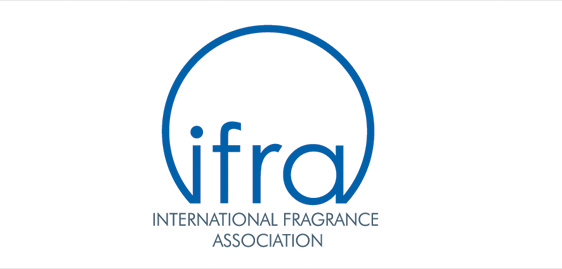
IFRA - safe fragrances in cosmetics
World fragrances in cosmetics is fascinating, but at the same time requires a great deal of responsibility. A fragrance that pleases the senses must be safe for the health of the user. This is what IFRA - an organisation that develops safety standards for fragrances used in cosmetics, perfumes and other personal care products, among others.
What is IFRA and why do its standards matter?
IFRA (International Fragrance Association) was established to ensure that the fragrances in cosmetics do not endanger the health of consumers. The organisation introduces and regularly updates standards that restrict the use of certain ingredients or ban them altogether. IFRA certification confirms that the fragrance composition complies with the applicable guidelines.
Safe substances fragrances are the basis for the responsible production of cosmetics - whether for daily care or luxury perfumes.
The 51st IFRA amendment - what changes did it make?
Introduced 51 IFRA amendment has brought a number of changes that significantly affect the fragrance formulations. Key updates include:
- The amendment includes changes to the maximum permitted concentrations certain fragrance ingredients in different product categories
- New fragrance ingredients have been introduced into the regulation.
- Improved risk assessment methods, based on current toxicological and exposure data.
- Established more detailed guidelines for the classification of products, including especially those that may come into contact with sensitive skin or be used in children's products.
51 IFRA amendment forces manufacturers to re-examine their cosmetic formulations and adapt them to more stringent requirements in order to guarantee maximum safety for users.
Which fragrances have been completely banned by IFRA?
As part of the IFRA update, some ingredients have been phased out completely. These include:
- oak moss absolute (oak moss absolute),
- treemoss absolute (wood moss absolute),
- selected forms aromatic aldehydes.
The ban on these ingredients is mainly due to their strong allergenic effects and potential toxic effects on the body. Fragrances in cosmetics must be selected with even greater care so as not to cause risks to consumers.
Allergic effects caused by eugenol and geraniol
Among the fragrance ingredients that generate the most excitement are eugenol and geraniol. Both of these substances are naturally present in many essential oils and have a pleasant floral and spicy aroma. However, their use is associated with certain risks.
Skin contact can lead to:
- irritation,
- allergic rashes,
- and, in extreme cases, to inflammatory reactions.
Both substances - eugenol and geraniol - have been included in the 51st IFRA Amendment, resulting in stricter limits on their use in various consumer products. These changes aim to increase consumer safety by reducing the risk of contact allergies and other adverse reactions associated with these ingredients.
Cosmetics most vulnerable to restrictive IFRA standards
Not all cosmetic products are subject to the same requirements. The most stringently assessed are:
- perfumes and eau de parfum,
- face and body creams,
- deodorants and antiperspirants,
- lip balms,
- cosmetics for children.
These products come into close and often prolonged contact with the skin, which increases the risk of allergic reactions. This is why fragrances in cosmetics of these categories are assessed in detail in accordance with current standards IFRA.
Latest studies on the safety of fragrances
Developments in science are providing a growing understanding of how fragrances in cosmetics affect the human body. Recent studies indicate that:
- Even natural ingredients can be strong allergens,
- many allergic reactions are of a delayed nature, making them difficult to recognise quickly,
- there is a need to take into account the 'cocktail' effect, i.e. the interaction between multiple fragrances at the same time.
More and more attention is also being paid to the effects of volatile substances on the respiratory system and the body's overall health. It is for these reasons that safety standards, such as those set by the IFRA, are becoming an integral part of responsible cosmetics production.
Why does IFRA compliance matter to manufacturers and consumers?
Safe substances fragranced in cosmetics is more than meeting legal requirements. It is an expression of concern for consumer health and brand reputation. IFRA certification is not mandatory at a legal level, but is becoming an unwritten quality standard for many manufacturers.
IFRA ensures that the fragrances in the cosmetics meet strict safety criteria, which contributes to building customer confidence in the brand.
If you want to create safe fragrances in cosmetics in accordance with current IFRA standards, contact your cosmetic laboratory: mpr-labs.com.